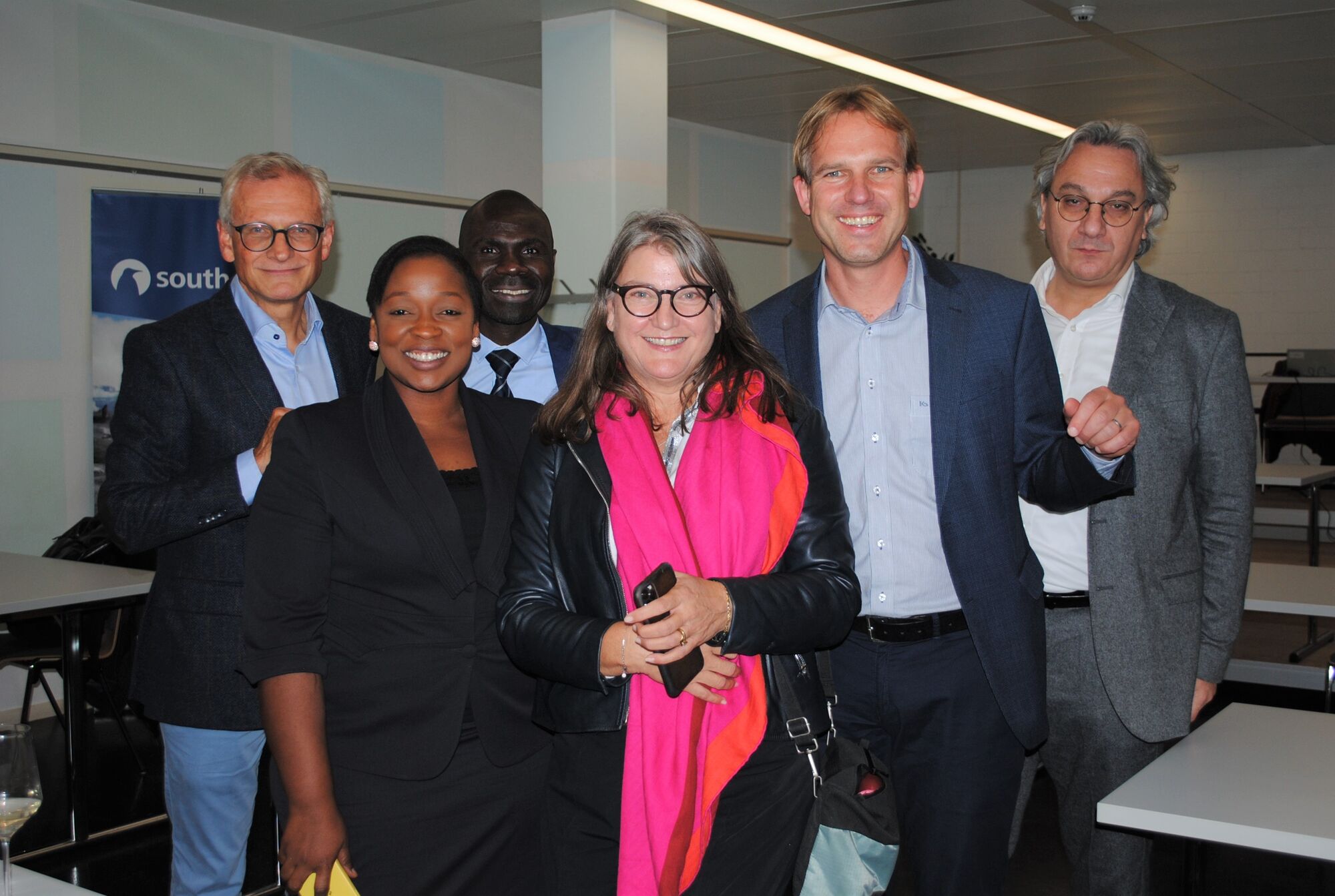Roselyn Fosuah Adjei, Director Climate Change of the Forestry Commission of Ghana, was interviewed by Christian Robin and Sophie Tüllmann from the SWISSCO Coordination Office.
What motivated you to dive into the sector of climate and forestry and what keeps you motivated to stay in this field?
So, I am a trained forester by profession. I had my first degree in Natural Resources Management from the Kwame Nkrumah University of Science and Technology in Ghana. Initially my first option was not to venture into natural resources, I had wanted to read medicine and be a medical doctor. But I had a re-think about my choices and then settled Natural Resources and it has been a great path worth taking so far. While I was in school, I had the opportunity to be an intern at the Forest Services Division (FSD) of the Forestry Commission and it was amazing. The field trips to the forest were most interesting and I realized it was a space that I could thrive and make an impact more than I had ever imagined, CARING FOR NATURE. So when I completed my first degree, I took up my national service with the FSD and I was later employed by the FSD as an Area Plantation Manager.
Within that same period, the Climate Change Unit was set up at the Forestry Commission Corporate Head-Office. The whole discussion on Climate Change was most intriguing and it got me interested. I did some further research and the subject got fascinating and challenging each time. It was an area that seemed shrouded in a mystery of blame game, unbelief, purported hoaxes, political nuances etc. However, the whole idea of forests being a significant part (though not really determined then) of the solution and the idea of keeping trees standing to save the earth touched me. This was different from the conventional forestry of harvesting, harvesting, harvesting and it was great to me. So I applied for a job opening in the Climate Change Unit, went on to do a Masters in Carbon Management at the University of Edinburgh and today I am the Director of that Office! In a period of 12 years, I have come to learn a lot, interact with many stakeholders both nationally (grass root level inclusive) and internationally and it's all worth it and gratifying to be part of the fragment of society finding solutions to a global problem!
Which «lessons learned» could the cocoa sectors in other producer countries draw from Ghana’s experiences in Climate & Nature Finance? And which is the most pressing issue regarding Climate & Nature Finance for the cocoa sector?
Many lessons have been learned in my opinion. First, Sustainable Finance is the driving force to achieve Climate Smart Cocoa Production. No matter how good a strategy, action or roadmap to address deforestation in Cocoa supply chains is, without Sustainable Finance, it will be a failure.
Second, addressing deforestation in Cocoa supply Chains can't be decoupled from provision of alternative or additional livelihoods to forest users and local communities. The products of deforestation and forest degradation due to Cocoa production are a means of livelihood and so commensurate alternatives have to be sought for and provided through inclusive engagements with all affected stakeholders for ownership and uptake. In essence non-carbon benefits should be designed to be an integral part of any Climate and Nature Finance initiative and use same to diversify income sources through small and medium scale enterprises.
Third, strong collaboration between private sector, government and local communities is needed to implement desired actions. To achieve this, all stakeholders must understand each other's goals and objectives and find a common ground to speak the same language for mutual benefits for people and planet.
Lastly, applying Climate and Nature Finance at program level (national or sub-national) rather than project level yields a lot more returns and drives the achievement of impacts at scale. The Climate Emergency demands urgency and urgency with ambition, therefore collective action at program level is better than individual project level interventions which become laborious, achieve sometimes almost negligible impact in national level accounting and also have high transaction costs.
How can SWISSCO help to reach your climate goals in the cocoa sector? How can we best partner with you?
1. By organising its members to adopt the Hotspot Intervention Areas designed for the Ghana Cocoa Forest REDD+ Program (GCFRP) to implement actions in collaboration with the government.
2. By driving convergence between CFI and REDD+ Implementation at the national and sub-national level.
3. By providing or advocating for the provision of dedicated finance to Government to implement such actions as Protection of Forest Reserves, Land-Use Planning, National Forest Monitoring, ensuring Strict Social and Environmental Safeguards Compliance and also facilitating communication and information spread amongst different stakeholders.
As you have been working on sustainable forest management for around 14 years now, can you highlight any specific good-practice strategy to reduce cocoa led deforestation and forest degradation?
- Land-use planning at the national and sub-national level
- Provision of alternative sources of raw material for wood and timber products.
- Cocoa Agroforestry for sustainability and enhancement in Cocoa production yields.
- National Forest Monitoring with both human and remote sensing components.
- Continuous awareness creation and capacity building on issues of deforestation and forest degradation.
- Training of Cocoa farmers in business ideas. Most Cocoa farmers in Ghana do not see their Cocoa production beyond family inheritance and that limits their ability to make more out of their trade.
To read more on the actual Learning Workshop on Climate & Nature Finance from October 22, 2021, please click here.

